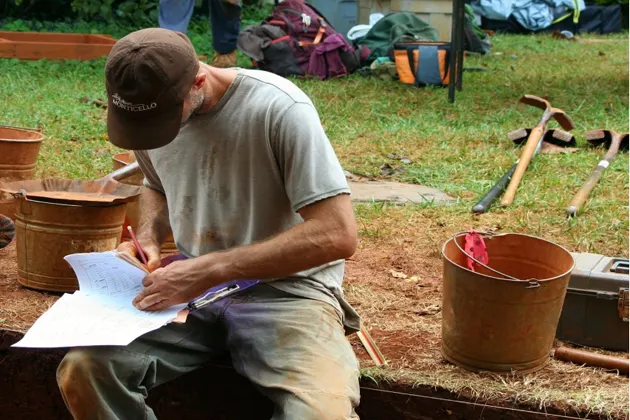Archaeology is a field that uncovers the mysteries of human history through the study of artifacts, ancient structures, and past civilizations. It requires a combination of technical expertise, analytical thinking, and physical endurance. Aspiring archaeologists must develop a diverse set of skills to succeed in this challenging yet rewarding profession. From conducting excavations to analyzing historical data, mastering these skills helps archaeologists make meaningful discoveries and contribute to our understanding of the past.
Developing Strong Research and Analytical Skills
Archaeology is heavily research-based, requiring professionals to gather, evaluate, and interpret information from various sources. Before any excavation or field study begins, archaeologists must conduct extensive background research to understand the historical significance of a site. Look for an online learning academy for Arizona students or other institutions offering specialized courses in historical research, archival studies, and data analysis to strengthen these skills. Learning how to analyze maps, historical texts, and past excavation reports prepares aspiring archaeologists to piece together evidence and form hypotheses about ancient societies.
Archaeologists use scientific methods such as carbon dating, soil analysis, and artifact classification. The ability to critically assess sources and validate findings ensures that interpretations of the past are accurate and credible.
Mastering Excavation Techniques
Fieldwork is a fundamental aspect of archaeology, and proper excavation techniques are crucial for uncovering and preserving artifacts. Excavations require precision, patience, and a deep understanding of stratigraphy—the study of rock and soil layers.
Archaeologists must learn how to use tools such as trowels, brushes, and sieves to carefully unearth objects without damaging them. Documenting findings through notes, sketches, and photographs is equally important, as proper documentation ensures that discoveries can be accurately analyzed and compared to historical records.
Hands-on experience through field schools, internships, and excavation projects provides valuable training in these techniques. Learning best practices from experienced professionals helps aspiring archaeologists develop the meticulous attention to detail required for successful digs.
Enhancing GIS and Mapping Skills
Modern archaeology relies on Geographic Information Systems (GIS) and mapping technology to analyze site locations and understand historical landscapes. GIS tools help archaeologists create detailed maps, track excavation progress, and visualize how ancient civilizations interacted with their environments.
Mastering GIS software allows archaeologists to overlay different types of data, such as satellite imagery and topographic maps, to identify potential archaeological sites. Surveying techniques, including the use of drones and ground-penetrating radar, further enhance the ability to locate buried structures without disrupting the land.
Gaining proficiency in these technologies provides a competitive edge in the field, as digital mapping plays an increasing role in archaeological research and site preservation.
Improving Communication and Collaboration Skills
Archaeology is a collaborative field that requires effective communication with team members, researchers, government agencies, and local communities. Archaeologists often work in diverse teams that include historians, geologists, and conservationists, making teamwork an important skill.
Clear and concise writing is equally important, as archaeologists must document their findings in reports, academic papers, and publications. Presenting research at conferences, engaging with the public through museum exhibits, and educating students about discoveries require strong verbal communication skills.
Understanding cultural sensitivity when working with indigenous groups or local populations is another key aspect of collaboration. Respecting the heritage and traditions of the communities connected to archaeological sites ensures ethical research and strengthens relationships between researchers and stakeholders.
Cultivating Problem-Solving and Critical Thinking Abilities
Archaeological research is filled with uncertainties, requiring professionals to think critically and adapt to unexpected challenges. Excavation sites often present difficult conditions, such as extreme weather, limited resources, or incomplete data. Problem-solving skills help archaeologists overcome these obstacles and make informed decisions.
If an artifact is discovered in an unexpected context, archaeologists must assess various possibilities before drawing conclusions. Creative thinking helps them reconstruct historical narratives and interpret findings in ways that align with existing knowledge.
Fieldwork demands flexibility, as site conditions and research objectives may change rapidly. Being able to assess situations, think on one’s feet, and adjust methodologies accordingly is crucial for making meaningful discoveries.
Building Physical Endurance and Adaptability
Unlike laboratory research, archaeology involves extensive outdoor work, often in remote locations. Excavating, carrying equipment, and working long hours in challenging environments require physical endurance and adaptability.
Field archaeologists may spend weeks or months at a site, dealing with extreme temperatures, rough terrain, and limited access to modern conveniences. Being prepared for these conditions by maintaining good physical fitness and learning survival skills enhances success in fieldwork.
Adaptability extends beyond physical endurance. Archaeologists must be prepared for unexpected discoveries, changes in research plans, and the need to travel to different regions for projects. Developing resilience and the ability to work in diverse conditions ensures long-term success in the field.
Success in archaeology requires a blend of research skills, field expertise, technological proficiency, and problem-solving abilities. Aspiring archaeologists who develop strong research techniques, master excavation methods, and embrace modern technology such as GIS will be well-equipped for careers in the field.
Effective communication, critical thinking, and physical endurance further contribute to success, ensuring that archaeologists can navigate challenges and make significant contributions to historical research. By continuously honing these skills and gaining hands-on experience, future archaeologists can uncover the hidden stories of past civilizations and help preserve humanity’s cultural heritage.











